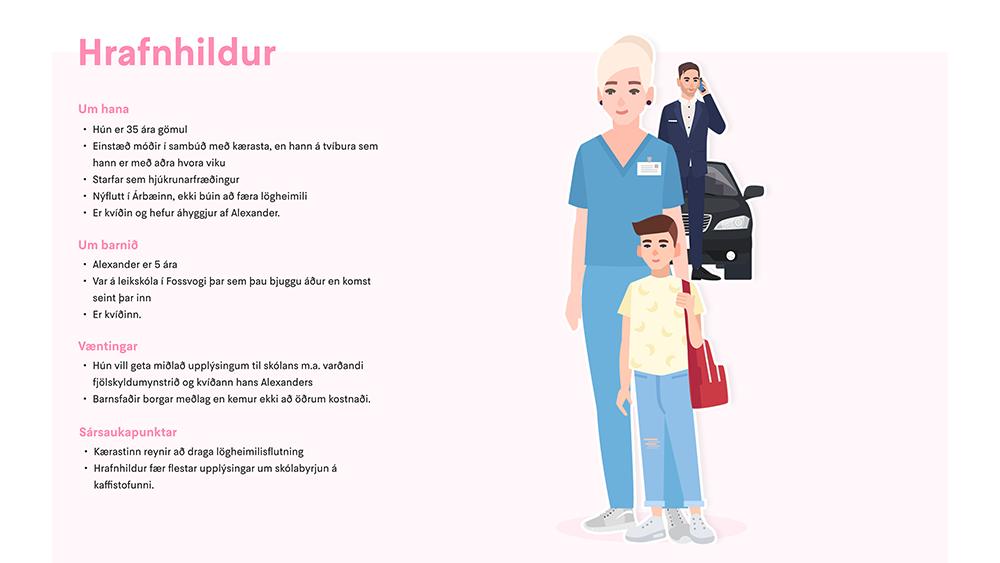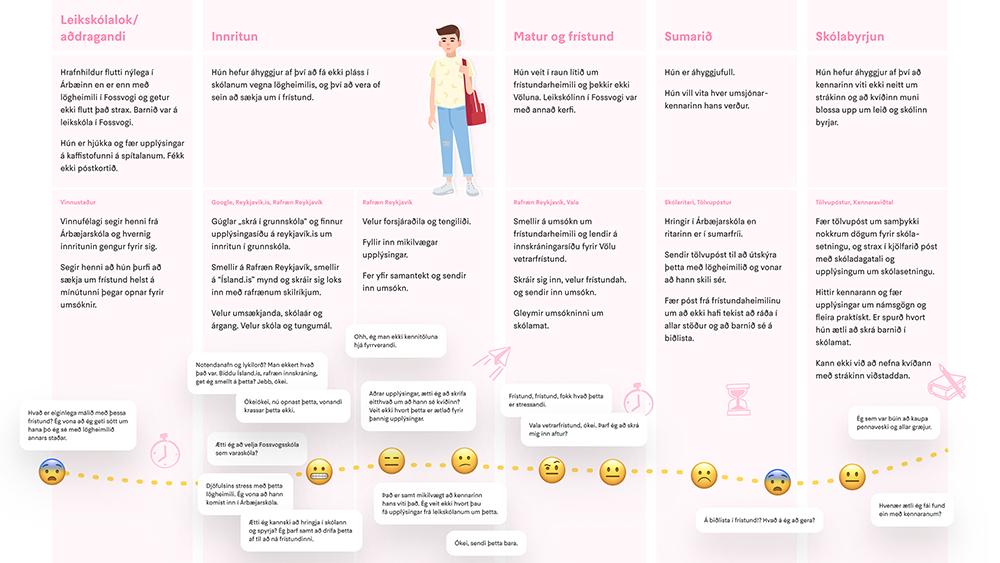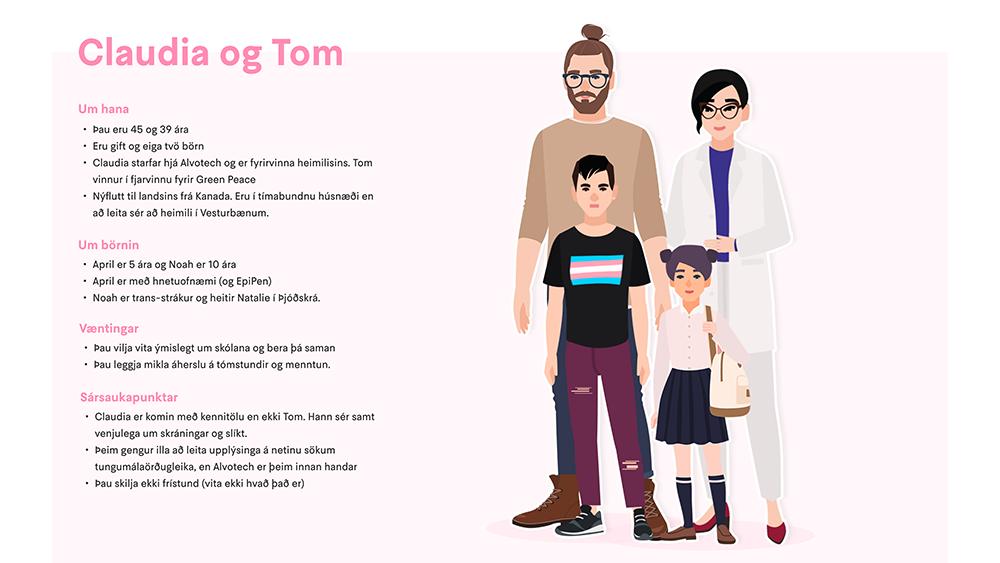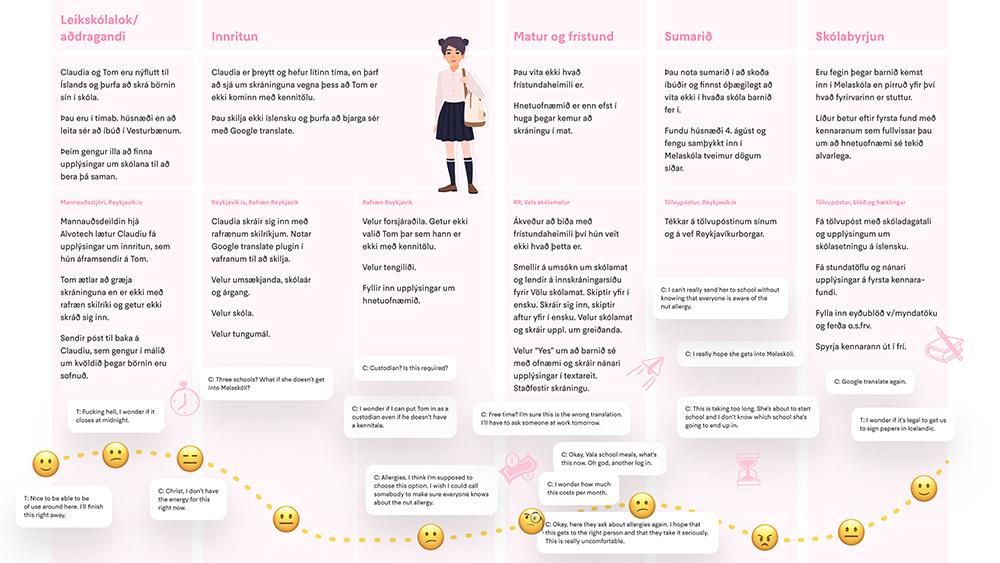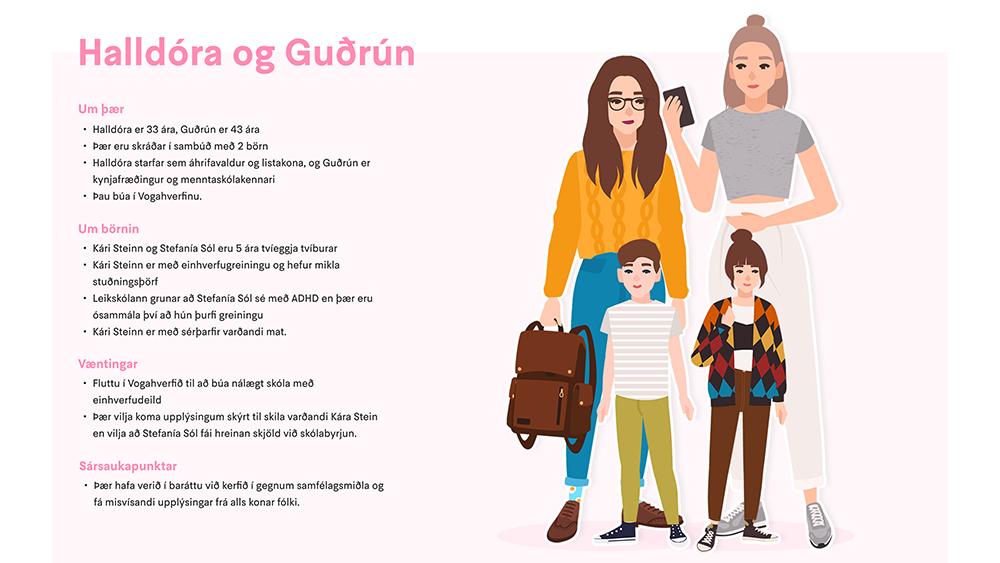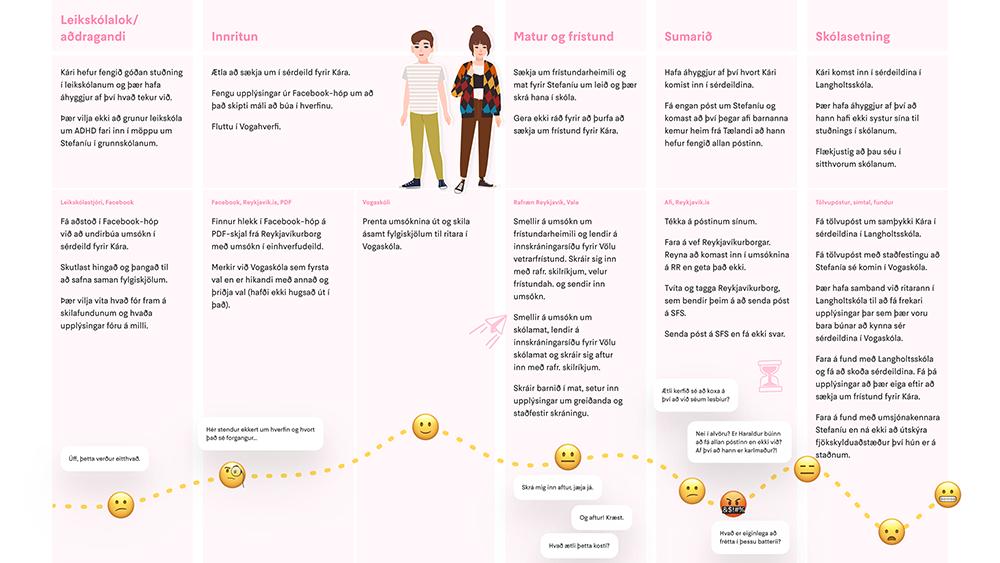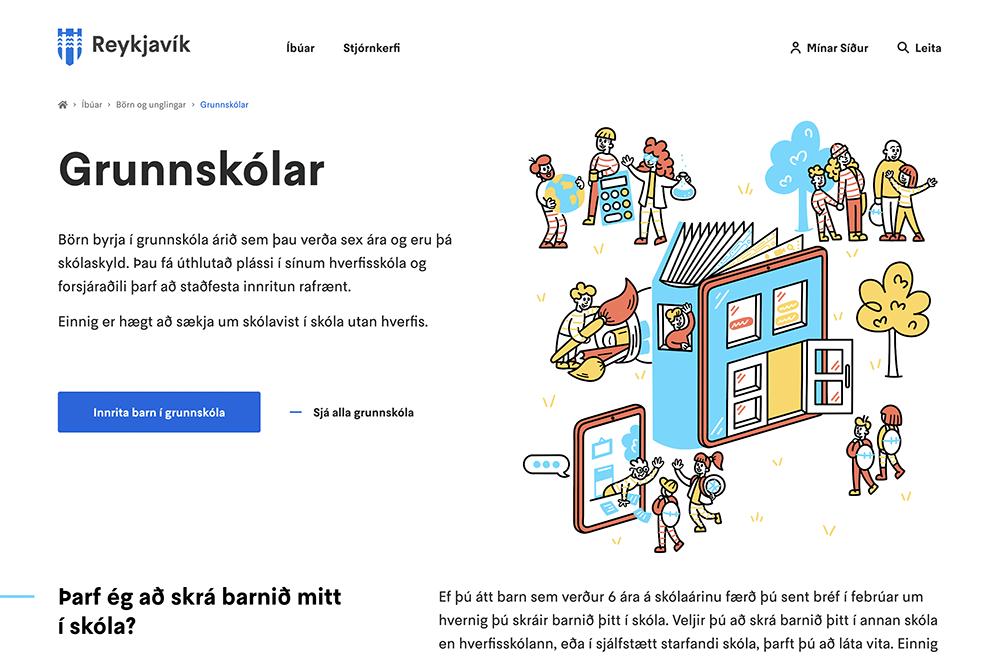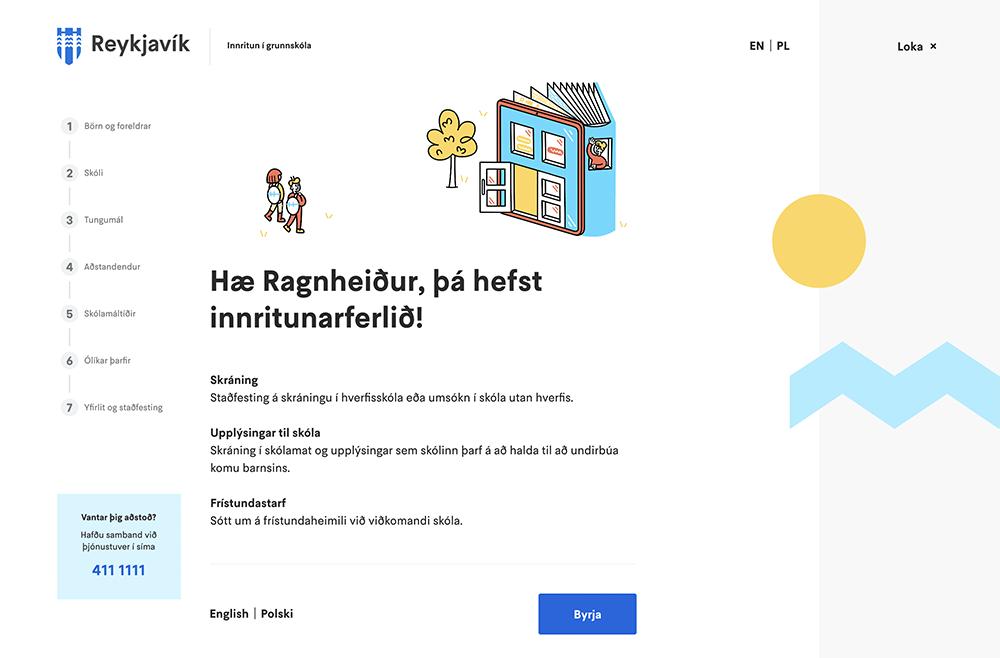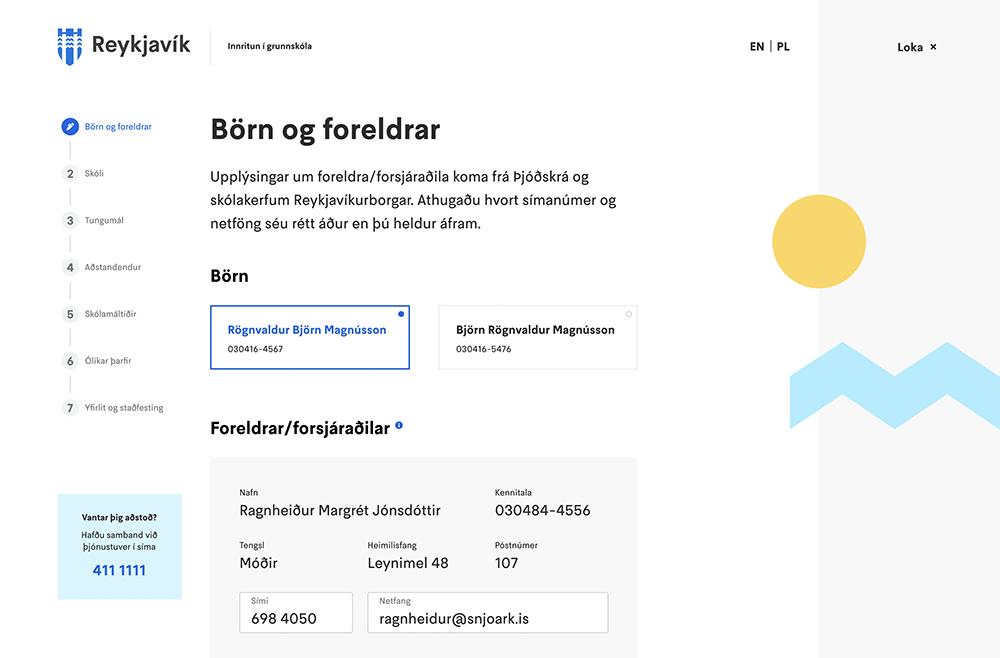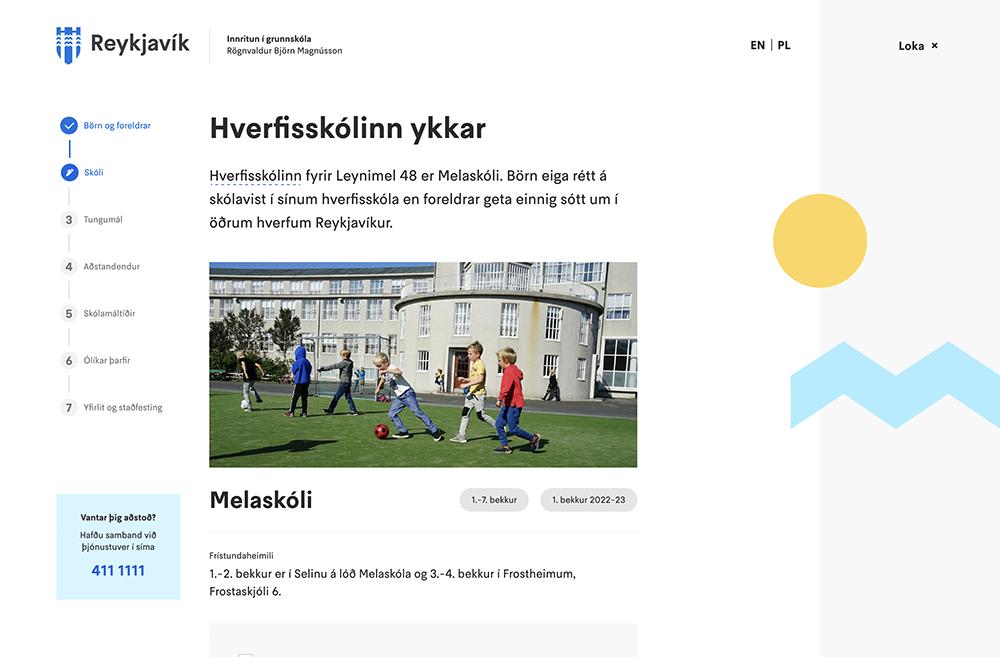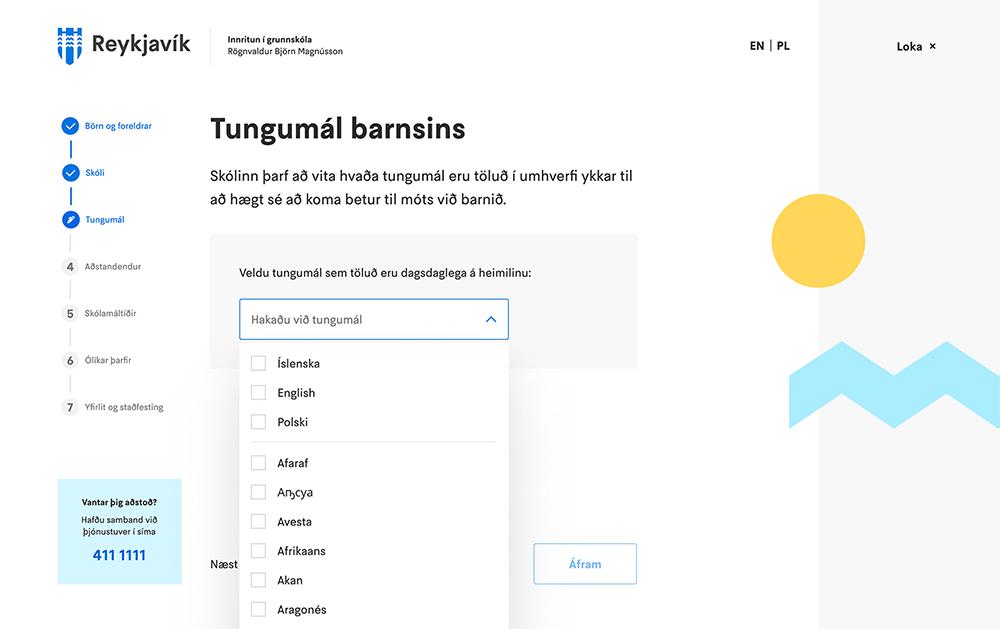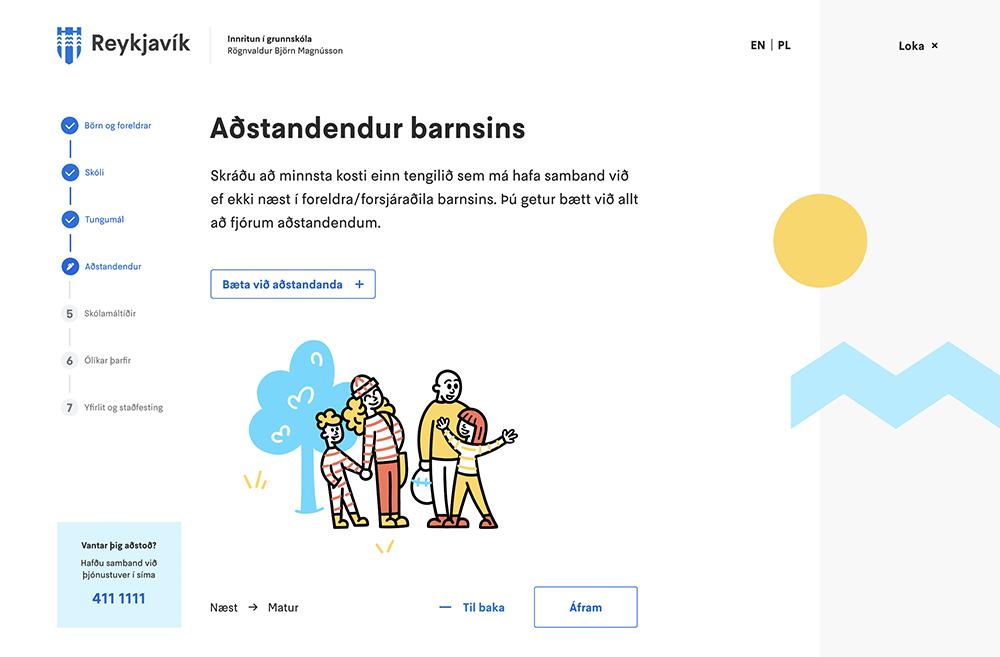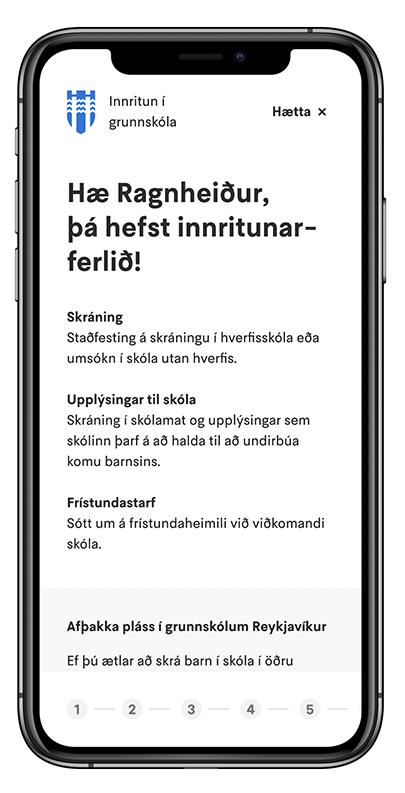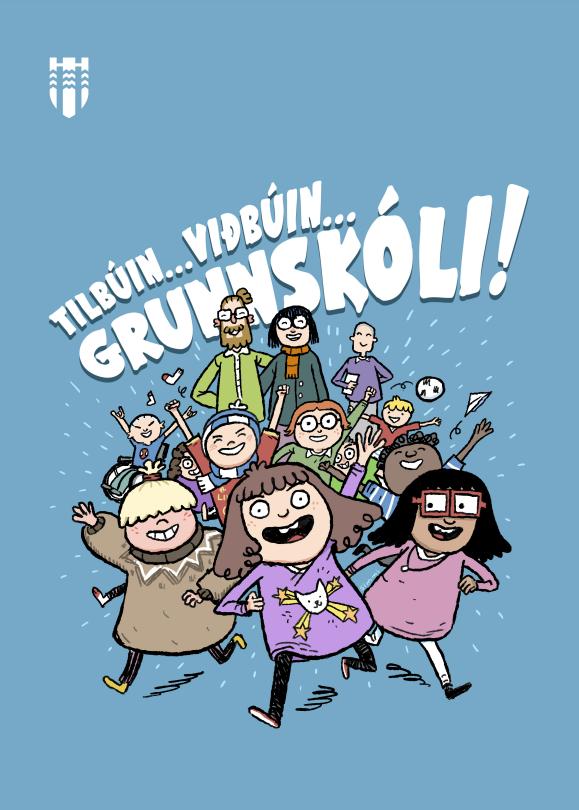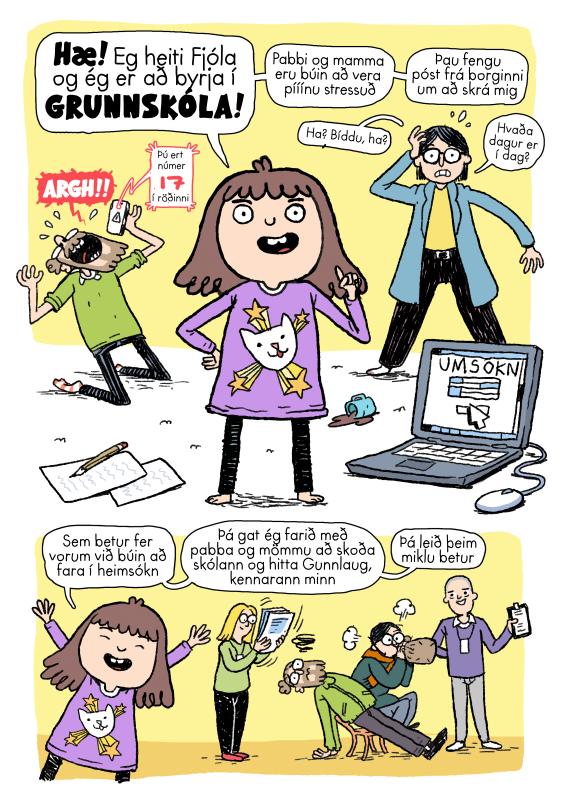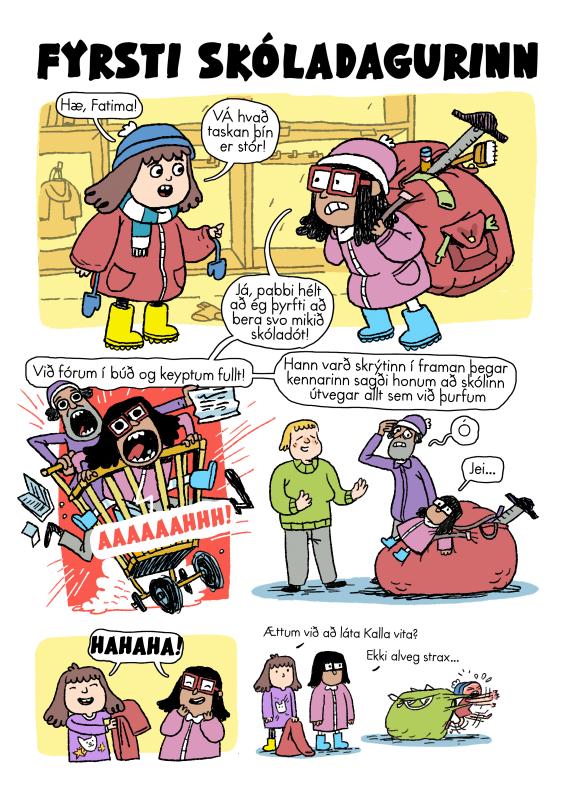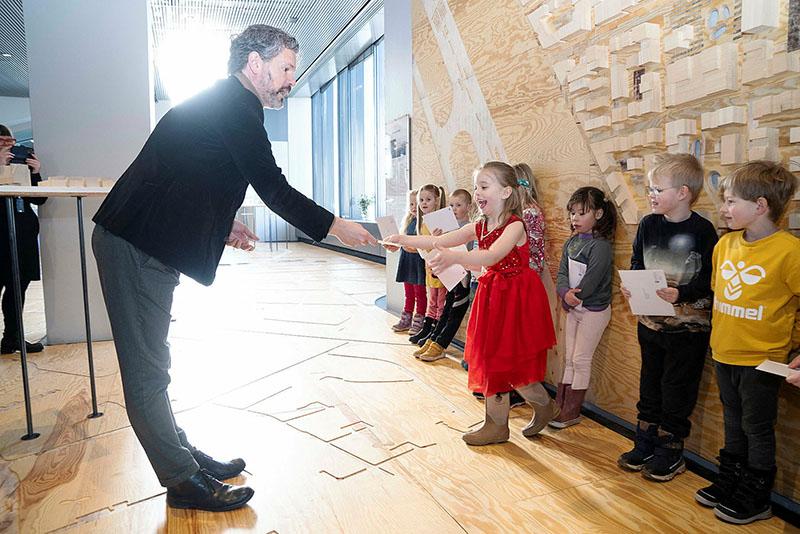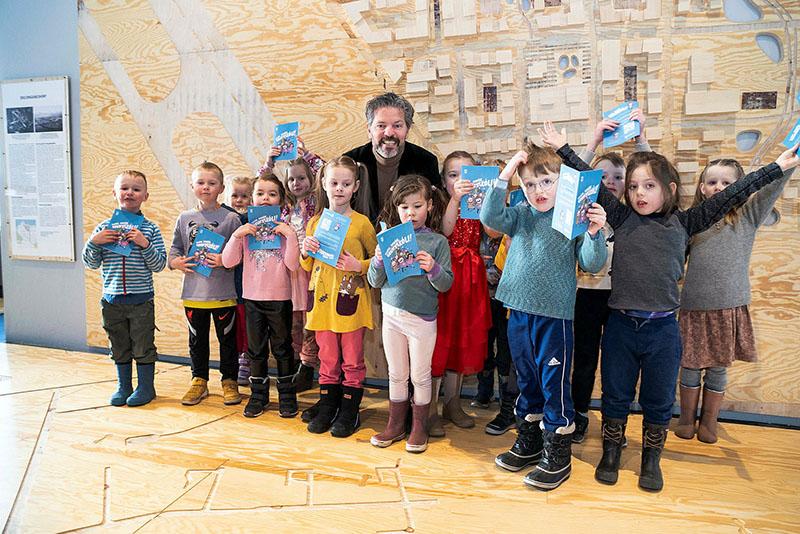Primary school enrollment
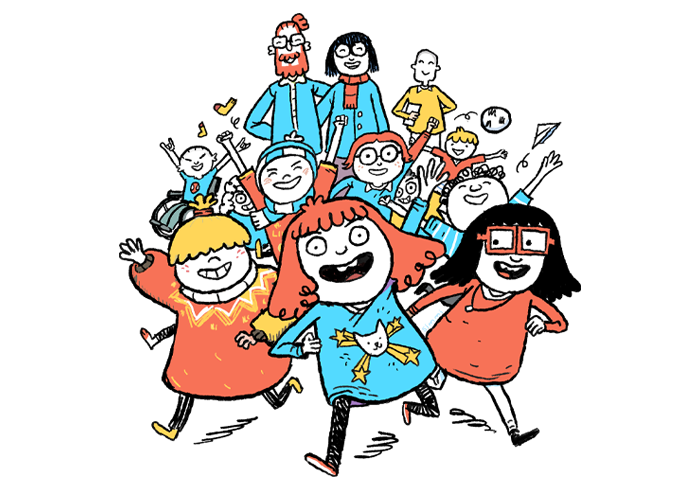
Children start primary school in the year they turn six. They will be placed in their district school, and the guardian will have to confirm the enrollment electronically.
The project
The project focused on transforming the process of enrollment in primary school as the old digital enrollment system was outdated and not adequately meeting user needs.
The methodology of user-centered design was adopted, and a software solution was developed based on research findings obtained through discussions with guardians and staff to gain insight into their experiences with the process.
Digital processes were improved, information dissemination was increased, and the system was made more trustworthy for all participants.
Objective
The project aimed to simplify the enrollment process, enhancing the overall user experience to be positive and free of uncertainty.
The goal was to present users with a unified interface during the enrollment process, regardless of the number of systems operating behind the scenes.
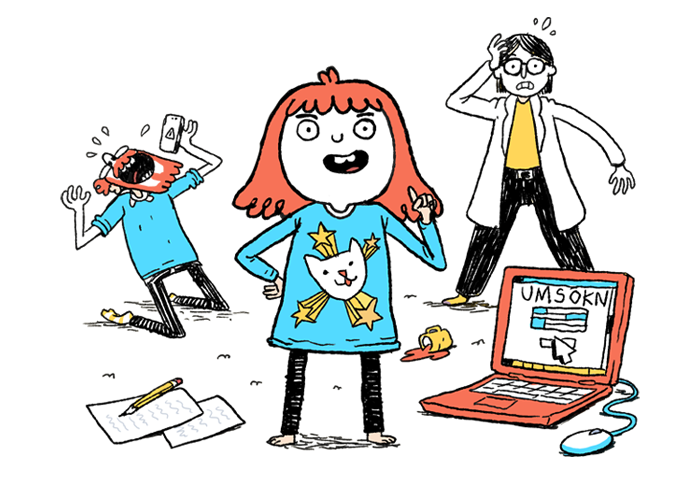
Products
- Software solution based on research and user testing results
- Changes in workflows, culture, and attitudes
- Improved communication in the form of a children's book about starting primary school
Service Policy
The transformation project was undertaken in accordance with the City's Service Policy, where user-centered design, professionalism, efficiency, and local services are key to improved service. Service changes were reviewed in line with regulatory and operational environments, stakeholders, and service aspects.
User research
Extensive user research was conducted during the project preparation. To design a good service, it's crucial to understand the people who will use it.
For this project, we talked to:
- Within the school system – district school principals, secretaries, office managers, preschool principals, principals of independent schools.
- Specialists outside the school system – social workers at service centers, staff from other municipalities in Iceland and abroad.
- Users – parents and guardians of children with diverse backgrounds and varied needs, future first graders (5-year-old children)
- Interest groups - ADHD Association, Sjónarhóll, Autistic Society, Samtökin '78, Unique Children in Iceland.
- Specialists from the Department of Education & Youth and the Department of Services & Innovation.
Thematic analysis
Numerous pain points were identified from both staff and guardians, which offered various opportunities.
The next step was a theme analysis of the pain points. This is done by thoroughly reviewing all data and classifying it into different themes.
We then divided these categories into three layers: application, procedure, and culture and transformed pain points into opportunities by forming them into 'How can we?' questions.
Archetypes
To visually consolidate data and better convey user emotions, three different archetype families and user journeys were created to assist in data processing and idea generation.
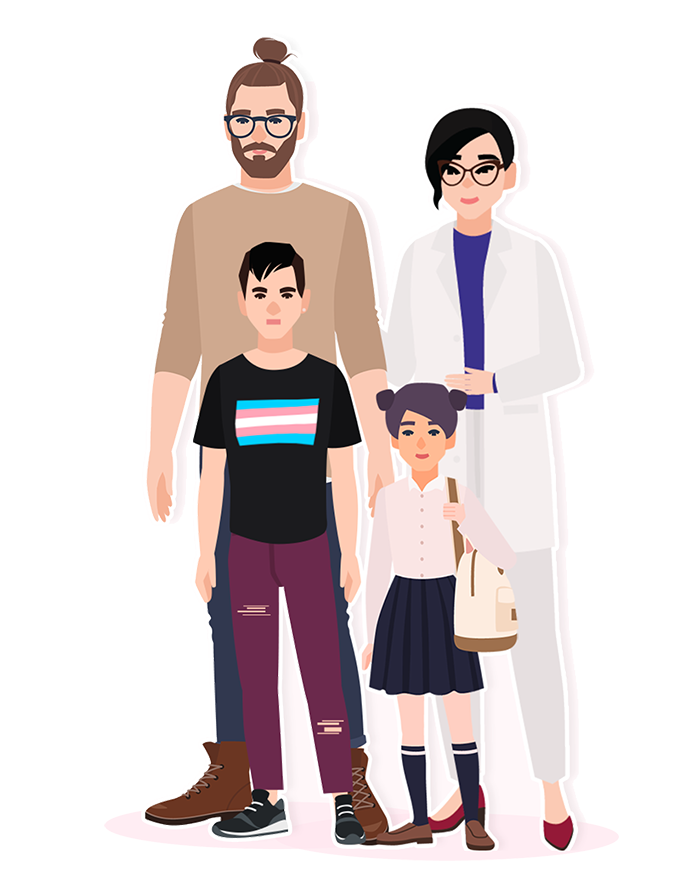
Archetype stories
A new and improved process!
The first version of the software solution for confirming registration in district schools was launched in Spring 2022. Here, parents can easily confirm enrollment or decline school attendance.
The goal was to meet the needs identified during the preparatory work. In this first version, the emphasis was on improving the experience of parents with a clear process, good overview, and robust information delivery.
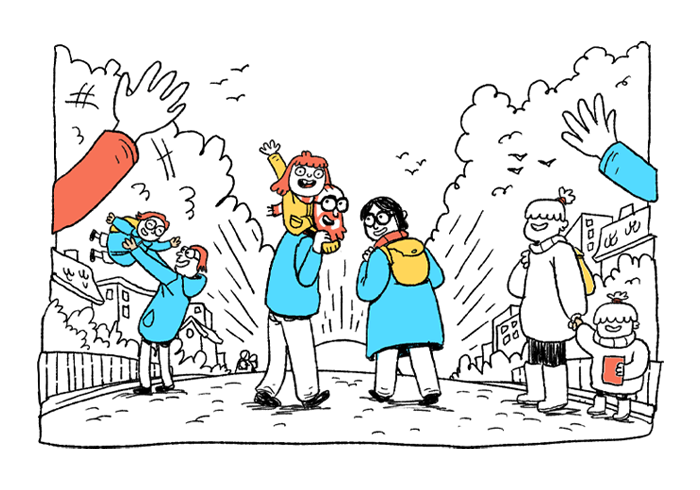
The enrollment process
Bjargey - employee portal
Alongside the new registration process, a new employee portal was designed for school staff to work with enrollment information for 6-year-old children. The portal was implemented in Spring 2022 and is designed with the needs of school secretaries and administrators in mind.
It includes information on all children with legal residence in the relevant district, the ability to filter data and have an overview of the enrollment and application status for each school. It's also possible to approve or reject applications for school attendance outside of school districts and send letters directly to guardians.
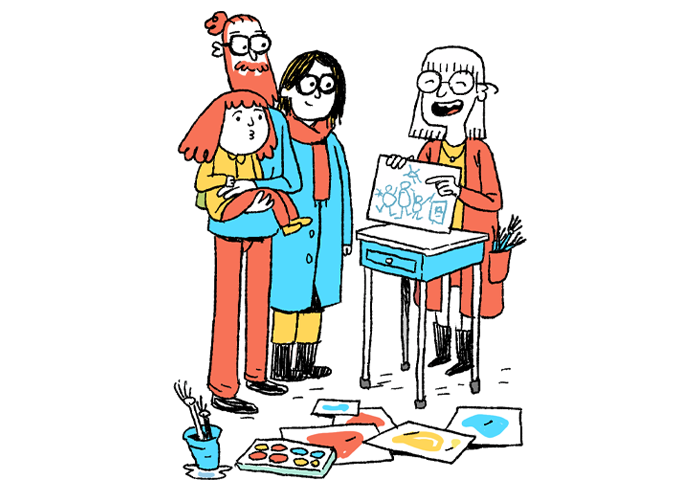
Shifting mindsets
To achieve set goals and maximize the software solution's utility, changes in procedures, culture, and attitudes are necessary. The digital journey is primarily about changing attitudes.
The importance of the human element must not be forgotten, and activating and empowering staff is a large part of making the digital journey successful.
Such change management depends on clearly defining the roles and responsibilities of those involved in implementation. Through personalized training for staff and emphasis on collaborating on the project rather than work for people, we better ensure successful implementation and satisfaction with the project.
Information dissemination – from postcards to a children's book
A common thread in the analysis of user interviews was that parents and guardians felt they lacked information, often resorting to unreliable sources.
Hence, it was essential to ensure that practical information about starting primary school was accessible for both children and their parents.
Ready... Steady... Primary School!
Over the past few years, Reykjavík's Department of Education & Youth has been mailing postcards to all incoming first graders. After the discovery phase, it became clear that the postcard was not memorable, and though aimed at children, it wasn't delivering the expected results.
To respond to user needs and improve the City's initiative, a redesign was decided upon. The postcard was replaced with a small book about starting primary school, mailed directly to future primary school students.
The goal was to build anticipation and direct parents/guardians to the right information at the right time. Alongside the book, a landing page was developed with helpful information that people could access on the website or by scanning the QR code on the book’s back cover. First grade received the book in the spring of 2022, and it was written by Sigmundur Breiðfjörð.
The Book about Fjóla
"I like it when you ask how I am doing at work"
Halla María Ólafsdóttir and Eva Jakobsdóttir collaborated in transforming the service of the Department of Education & Youth.
Trust and understanding in their cooperation helped break down walls between departments and fostered a new vision for service and procedures.
Halla and Eva discuss the digital transformation of services, the so-called cultural hack.
